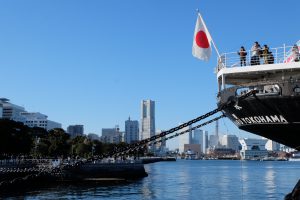目次-Contents-
What is Tax Audit(税務調査)?
In Japan, you declare your Sales, Cost, Profit and so on to calculate your tax amount to be paid.
This is called the Tax Return. You are required to do this within 2 months after your Fiscal year ends.
If everyone is honest, this system is OK.
But there are someone who reports their sales less while their cost more.
Because you can have your profit low and pay less tax to the government by doing this.
Of course, this is illegal.
Tax Audit is there to prevent this from happening.
They come to your office to check whether your tax return has been done without error or tax evasion.
Generally, you have a Tax Audit once in 3 to 5 years.
Evidence is everything
When you have a Tax Audit, it is important to prepare the Evidence in advance.
Evidence is used to prove that you have actually paid for the cost for your business.
Let’s say you recorded a dinner with your client as cost.
Without the receipt, auditors might think;
“This dinner wasn’t actually took place. They just want to reduce their tax amount.”
If you don’t retain the receipt, you may be suspected of being dishonest.
So when you receive receipts, it is very important to retain them for at least 7 years and fill out the detail in the margins.
- Invoice
- Receipts
- Contract
- Bankbook
- Quotation
- Sales record
- Salary payment slips
- Credit card statements
- Withholding tax statements(源泉徴収簿)
Items above are examples of Evidence.
In other words, they are basic materials for preparing financial statements.
Auditors take it for granted that the figures in the tax return have a basis in fact.
Add information on receipts
Just retaining the receipt is not enough.
Let’s say you went for dinner with your client.
You might be thinking that you can record this as cost as long as you get its receipt.
Unfortunately, that is not correct.
If auditors see the receipt, they might think that you just went for dinner with your family or friends.
So they will ask you questions like this.
“Who did you have the dinner with?”
“How many people were there?”
“What was the purpose of the dinner?”
Explaining all these things verbally is not enough usually.
It is necessary to convince the auditors with an evidence that the cost was properly spent on the business.
So, when you have dinner with your client, fill out the following things at least.
- With whom (all member)
- Purpose
- Relation with the person
What if you lost / haven’t got receipts
Without receipts doesn’t mean you can’t always record them as cost.
Basically, they would eliminate the cost that is lacking in its receipt.
But there are things you can do.
Prepare a Journal entry(出金伝票)
Sometimes you might lose your receipts or there are transactions where you can’t obtain a receipt on it.
For example, your client’s wedding party.
You probably bring around 30,000 yen as a congratulatory gift.
If you pay this money for your business, it can be recorded as cost.
But the bride and groom don’t issue a receipt on this, of course.
In this case, you should prepare a Journal entry(出金伝票).
That is a template you can record your cost when you don’t have receipts.
You can buy this at a bookstore.
In a Journal entry(出金伝票), fill out the following things to prove that the expenditure is spent for your business.
- Date
- Amount
- Purpose of expenditure
- With whom (if it’s dinner or lunch)
Though not all auditors would accept the cost that is missing receipts or detail, preparing a Journal entry is much better than nothing.
Prepare well in advance
Collecting and filling out the detail should be done as a routine.
Don’t do it all at the end of the Fiscal year.
You will have forgotten everything.
Ideally, attach all the receipts on a notebook and print out the General Ledgers(総勘定元帳).
When you have a Tax Audit, show the 2 notebooks to them.
It makes the audit smooth.
And if they are well prepared, auditors would think that your company does bookkeeping so well and shorten their audit.
Having any concerns like these with your accountant?
Your tax accountant…
- changes every year
- suggests no tax-saving measures
- doesn’t give you financial statements in a timely manner
- doesn’t explain the contents of the statements
- is reluctant to use the cloud software
- rarely shows up to your office
- is always late to answer your questions
- is elderly and you’re worried about the near future
Lack of communication with tax accountants can cause incorrect accounting processing due to the mess of the contents of the bookkeeping.
As a result, it increases the risk of additional taxation of up to 40% through a tax audit which is conducted once every 3 to 5 years.
To prevent paying additional taxes, it is important to share accounting processing and the business environment with tax accountants on a daily basis and to take measures to address additional taxation risks at an early stage.
We, Masa Tax Consulting, not only consult on accounting contents but also provide tax audit preparation measures and proposals for tax-saving measures that are optimal for customers as the most casual/friendly tax accountant in Japan.
We now offer a free initial consultation and a first-month-free policy.
We do not force you to make any contract, so please feel free to contact us.
~The representative tax accountant will always respond responsibly.~


















